I recorded a livestream over the weekend discussing the news of the week, including the new developments in the Russia/Ukraine conflict.
I had meant to talk about parallels with the leadup to World War I but that slipped my mind, and it was getting long enough already.
Barbara Tuchman’s The Guns of August is one of the great books about the Great War. She opens her story with the funeral of King Edward VII of Great Britain, an event that was attended by kings and emperors from throughout the world. Tuchman points out that this would be the last such gathering in history, as the war and its aftermath would spell the end of many great monarchies and empires.
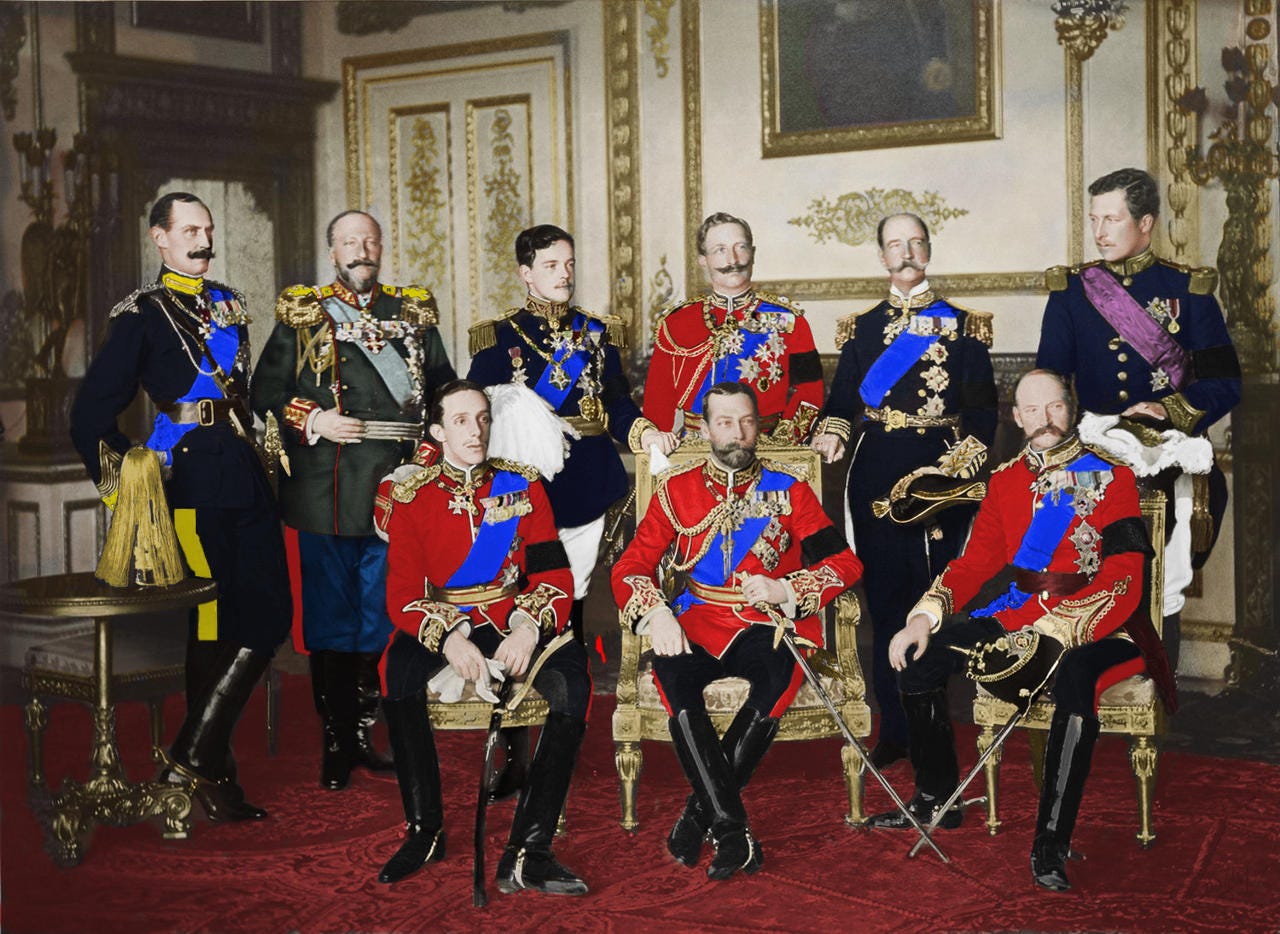
Five European empires entered the war, but only Britain remained standing in the end. The Austrian and German Empires were dismantled by the victorious Entente, the Russian Empire fell only to be reborn as the Soviet Union, and the Ottoman Empire collapsed into the modern nation-state of Turkey.
Even Great Britain never really recovered. The best young men of England, Scotland, and Ireland died in the trenches of France, and those that survived were scarred for life. As an aside, the next time you read through J.R.R. Tolkien’s The Lord of the Rings, try to read it through the lens of the First World War. Tolkien’s description of the Land of Mordor - ash and smoke, fire, poison, and death - comes from his own personal experience fighting the Battle of the Somme. At a deeper level, the idea of young men going to fight in a faraway land, only to return and find that the war changed them so much that they can no longer fit in the home they hoped to save is perhaps the most important theme of the novels.
World War I killed millions of people, but it also dealt Western Civilization a mortal blow. It was an epoch-defining event that upended the social order that had grown up in the past thousand years. It led directly into the Great Depression, World War II, and the Cold War.
Western Civilization experiences a violent upheaval every century or so. The Thirty Year War of 1618-48 not only killed millions but completely changed the way borders were drawn. People began to see that rather than being subject to their liege lord, they were instead nations bound by culture, ethnicity, religion, and tradition. Out of that war came the Peace of Westphalia, a system of nation-states that has continued to this day, albeit one that is crumbling before our very eyes as globalist mega-corporations and multi-national organizations have begun to exert more power than governments.
The era starting in 1789 with the French Revolution and ending in 1815 with Napoleon’s defeat at Waterloo was another such upheaval. The last remnants of the old system were swept away, and even the thousand-year-old Holy Roman Empire was finally officially dissolved. The nationalistic sentiments aroused during this time would find their ultimate fruition in the revolutions of 1848.
World War I destroyed the old order and began the process of ushering in a new one. We now sit at the end of that cycle, as the liberal world order established after WWII feels just ripe for upheavel. Current American foreign policy seems to assume that our status as sole superpower will continue indefinitely, but the lessons of history are that no empire or system lasts forever.
Most schoolchildren know that Gavrilo Princip’s assassination of Austrian Archduke Franz Ferdinand sparked World War I. However, that is the how, not the why. World War I happened due to many reasons - entangling alliances, industrialization, nationalism - but most of all, in my opinion, the world was simply due for an upheaval. The existing system that was borne in Westphalia, then tempered by the French Revolution, Napoleon, and the revolutions of 1648, was old and stale, and could not handle modern technology and the societies that were evolving accordingly.
There was no reason that the assassination had to start a world war. Austria attempted to use the incident as leverage to gain hegemony over Serbia, and Kaiser Wilhelm II of Germany gave Emperor Franz Josef a blank check - promising to back him no matter what. Did the Kaiser know what he was getting into? He had his sights set on Russia in the east and France in the west. France herself had been champing at the bit for war ever since they were humiliated by Germany in the Franco-Prussian War nearly half a century earlier. French schoolchildren were all taught that someday they would take back the lost province of Alsace-Lorraine.
So Germany and Austria were allied, while France was allied with Russia, who was allied with Serbia. You can see how the dominoes would fall. Austria declared war on Serbia, and so Russia declared war on Austria in response. Germany had long ago created their plans for a two front war, figuring Russia would take a long time to mobilize their troops so the goal was to knock France out first. However, 20th century armies were massive, and to execute their plan required passing through Belgium on the way to France.
Belgium, however, was neutral. Britain, France, and Germany had all signed a treaty guaranteeing Belgian neutrality after that country was created in the wake of the Napoleonic Wars. Germany assumed that Britain would stay out of the war - why would a nation risk its best young men to fight over a piece of paper in a war that would surely be over in a month anyway?
The British people were of a different caliber back then. There was no question in their government and military leadership that they would fulfill their promise to Belgium. In September 1914, the British Expeditionary Force came through at the First Battle of the Marne, joining with French forces to halt the German lightning offensive mere miles from Paris.
Unfortunately that was just the beginning of the carnage. The armies dug trenches from the Marne to the English Channel, and the stage was set for four years of unrelenting death and destruction.
The Great War broke the world. Germany was so beaten down they turned to Adolf Hitler for salvation, and he engaged in such atrocities that his very name is a synonym for evil. Russia imploded, leading to the USSR and the murder of tens of millions of people. Austria lost their empire and became a third rate power. Britain and France were so scarred by the war that they were wary of getting involved in another, so they appeased Hitler’s desire for expansion. World War II would mark the end of both nations as great powers.
On the other hand, the world wars saw the rise of the United States as the greatest power in history. After World War II our military might was unchallenged, our culture dominated the world, and we were considered the leaders of the free world. However, that greatness might end up being short lived, as we seem to be speedrunning the decline and fall of the Roman Empire. The thirty years since the end of the Cold War have been a long series of failures, even as our country is quickly falling apart on the inside.
The most important thing that was lost in the aftermath of World War I was the belief of Western Civilization in itself. If we were once too focused on our greatness and ignored our sins, today the opposite is true. Western nations do not believe they have the right to exist, and so they allow other nations, other cultures, to take advantage of them. Britain, France, Germany, and the United States alike have no rhetorical defense for why they should not allow their cultures to be annihilated and their people replaced.
The post World War II order has been fragile; forty years of Cold War followed by thirty years of America as the sole superpower. Rather than stabilizing since the fall of the USSR, the world has only gotten more out of control. Russia is looking to expand, Turkey and Iran both desire hegemony in the Middle East, China wants to be the next superpower, and all the while the West is killing itself with forced diversity, deviant sexuality, and unrestrained corporate greed.
In 1962, President John Kennedy ordered his staff to read Barbara Tuchman’s book in the hopes that they could avoid the mistakes that led to World War I. The Cuban Missile Crisis that year was the closest the world has ever come to nuclear war, and JFK was desperate to avoid the same fate as Austria, Germany, Britain, and France.
The leadup to World War I was like a game of chicken in which no participant was willing to flinch. The industrial nature of modern warfare meant that mobilization could take weeks, so governments were forced to begin the process as early as possible so as not to be caught off guard. Once one nation announced mobilization, the rest had to follow, lest they fall behind. The road to war was thus a machine that could not be stopped once it was started.
It feels the same way today, doesn’t it? Our leaders, like those of Austria and Germany in 1914, feel invincible - they do not act as if there is a possibility that their actions will have adverse consequences. They are poking the Russian bear in the same way the Entente poked the German eagle in the early 1900s. The Biden administration is sending mixed signals on our relationship with Taiwan. We are still engaged in proxy wars in Syria and Yemen. Any one of these little wars could explode at any moment into World War III.
I think there is a certain strain of State Department or Pentagon apparatchik that regrets the peaceful end to the Cold War. We spent fifty years building a military machine designed to end the Soviet Union and never got to see it in action. We fought little wars in Korea, Vietnam, and Iraq, but we never had the big one. Of course, nobody would ever admit to this, but it is the sense I get from much of the rhetoric coming out of the military/industrial complex.
President Eisenhower warned us that this system would eventually grow so powerful that it would end up creating demand for its products. After the Cold War ended, there was suddenly no big enemy to fight, no threat to justify our massive military machine. The 9/11 terror attacks gave them a reason for being, but our disastrous withdrawal from Afghanistan last year seems to have put the kibosh on that long adventure.
Just like in 1914, we stand on the brink of a war that could bring revolutionary changes to our world:
The United States is a dying empire, and our leaders are desperate to hold on to power as well as to continue advancing their progressive globalist agenda. Our government has made regime change in Russia their goal for nearly a decade, and is now pouring more and more resources and rhetoric into making that dream a reality.
Russia seeks to return to world power status, and wants control of Eastern Europe. They believe that the eastward expansion of NATO is a threat to their existence and have long said that they would never allow Ukraine to join.
Ukraine obviously wants to survive as a country, but they are dependent upon the west for their very existence. Ever since Maidan coup in 2014, Ukraine has essentially been a vassal state of Europe and the United States. They have also long been a place for wealthy and powerful oligarchs to launder money - see the Hunter Biden story. The current leadership in Kiev cannot survive without Western support, and Western leaders seem driven to fight Russia to the last Ukrainian.
China is ascending the world stage, but they have their own internal issues that threaten to boil over. They are looking far ahead, seeing a future where American dominance is diminished and the petrodollar no longer the trump card it once was. Like the United States in 1914, they might try to sit this one out, only jumping in when it is to their advantage to join the winning side.
The rest of the world is looking to follow the leader. Osama bin Laden once said that people see a strong horse and a weak horse, and naturally bet on the strong horse. He was evil, but not wrong - the United States, like Austria, Russia, and the Ottomans before the Great War, looks like a weakened horse. How we respond to these current crises will determine if we remain the leader of the free world.
With the benefit of hindsight we can see the many off-ramps before 1914. So too will history say that there were ways to avoid World War III. It will require leaders who are willing to put human life before the global game of RISK that they seem to be obsessed with playing, leaders who are statesmen rather than cynical globalist activists or greedy corporatists. Unfortunately, such leaders are few and far between today. If the great statesmen of Europe could not stop World War I, how are their lesser descendants going to stop World War III today?
There is little we can do to affect the affairs of great powers. We can write letters to our representatives - I would ask Senator Jim Risch to stop calling Vladimir Putin an evil dictator who needs to be removed from power - but other than that we can only pray for a peaceful resolution. So my advice remains the same: invest in your family and in your community. Do what you can to keep your city, county, and state a safe place to live and work. There are definitely hard times ahead, but we can ensure our families and communities survive and thrive. It is not likely to be the end of the world - the American people survived the Revolution, the Civil War, the World Wars of the 20th century, and the Cold War, and we will survive whatever is to come in the 21st.

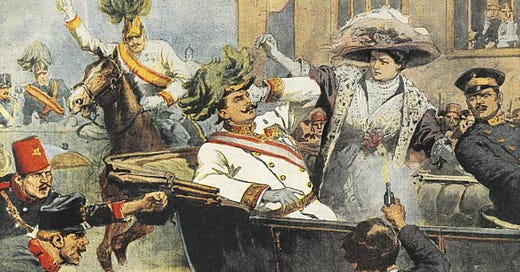


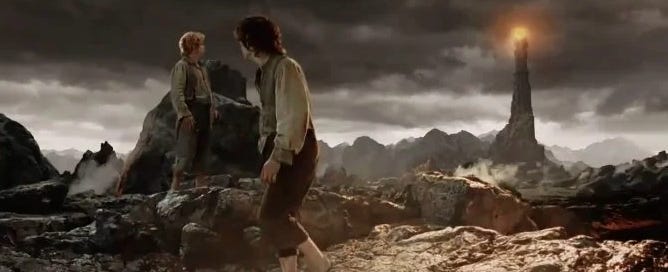
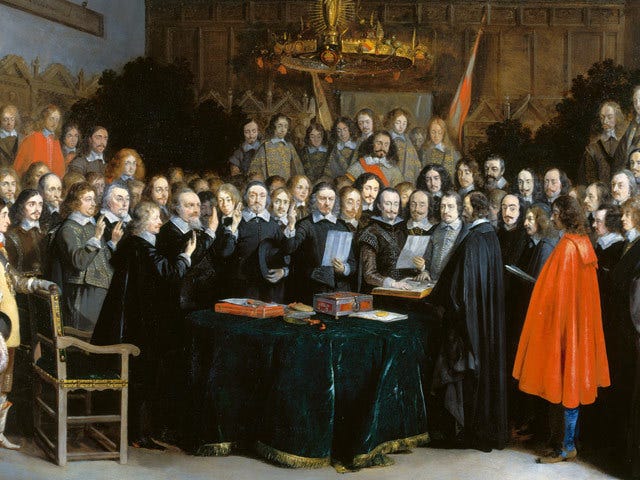

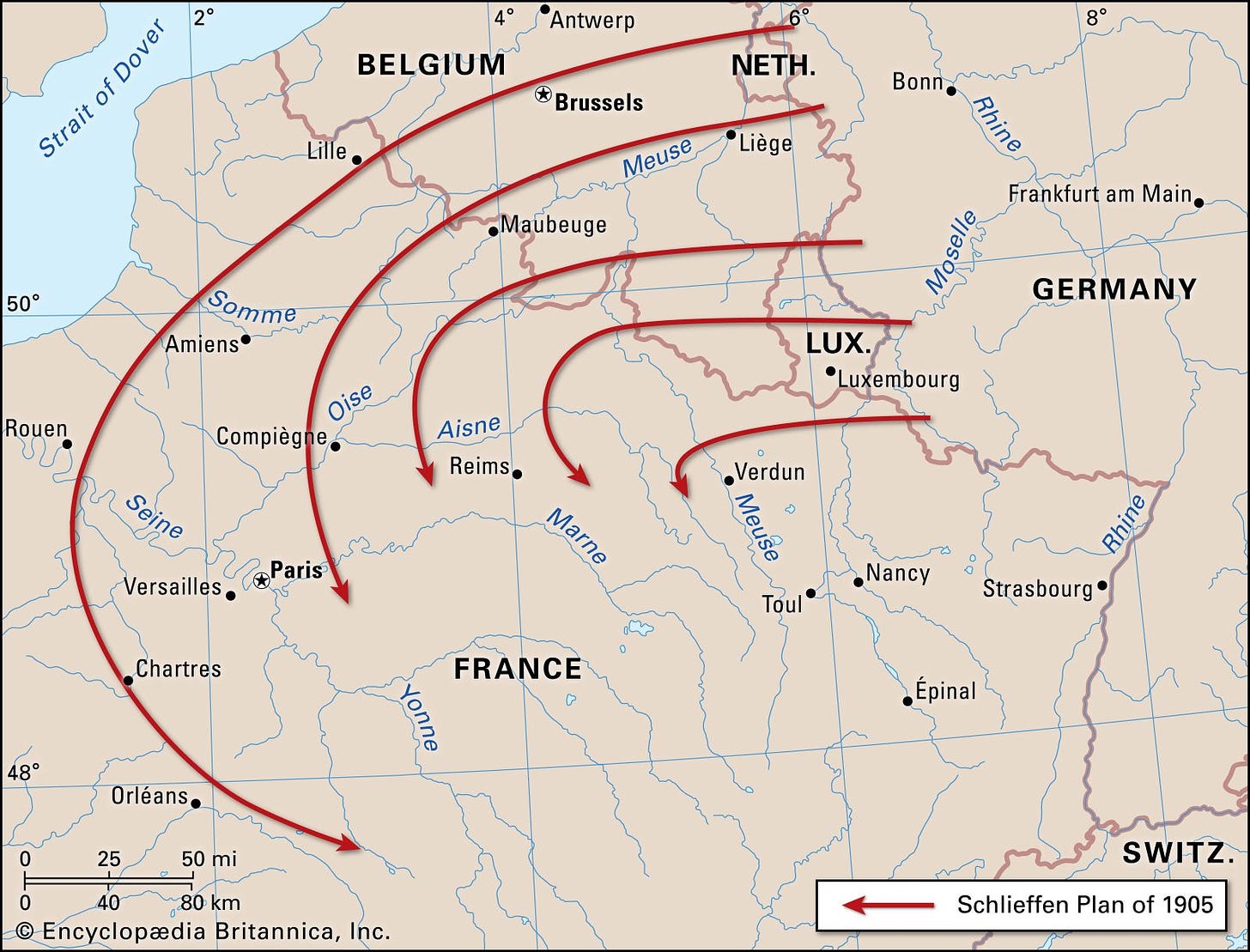
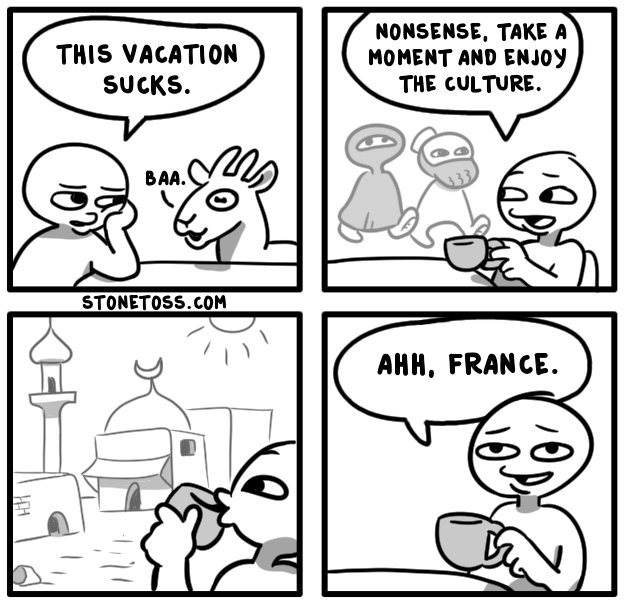
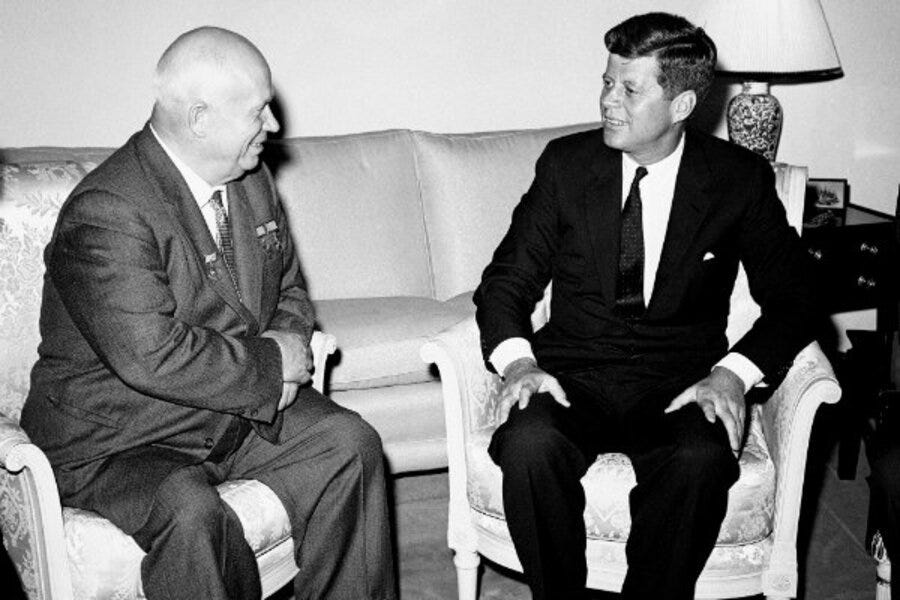
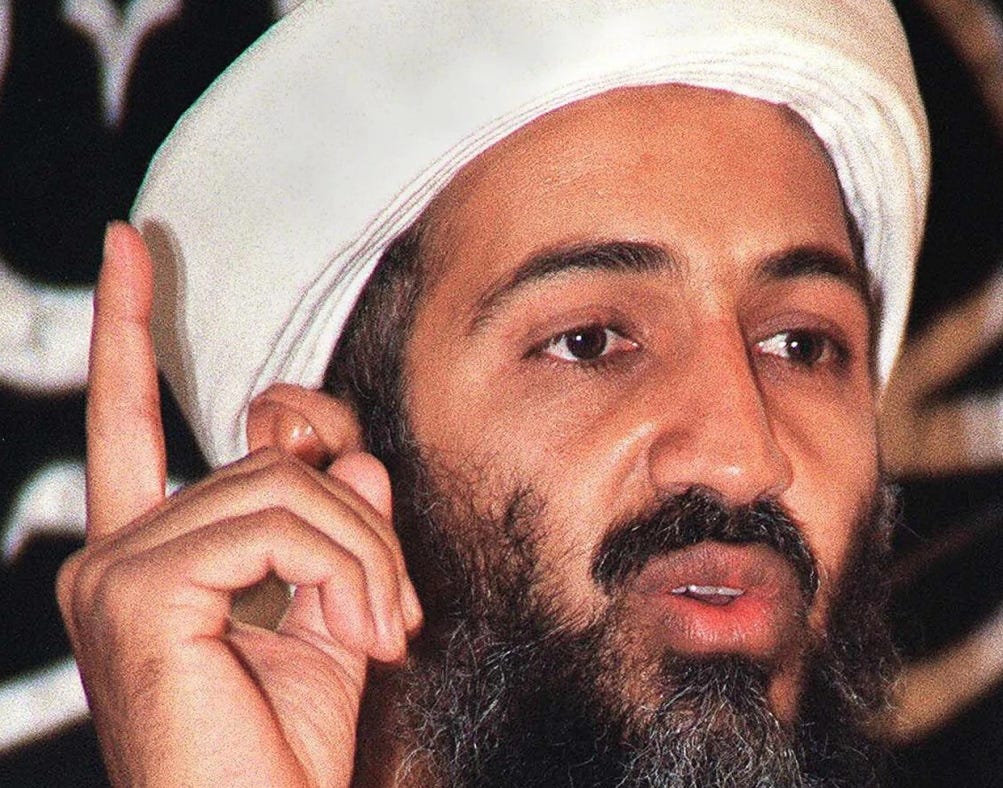
Nicely done, Brian!